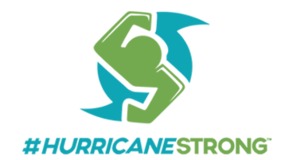
Hurricane Preparedness Week
The National Weather Service has prepared, once again, a series of posts to help build a Weather-Ready Nation. We are seeing different cities around Miami spreading the word and we thought we’d do the same. I know you think we hear the same information over and over, every single year and it becomes mundane but take a quick look and make sure you are not missing anything from your own hurricane preparation plans.
Hurricane Preparedness
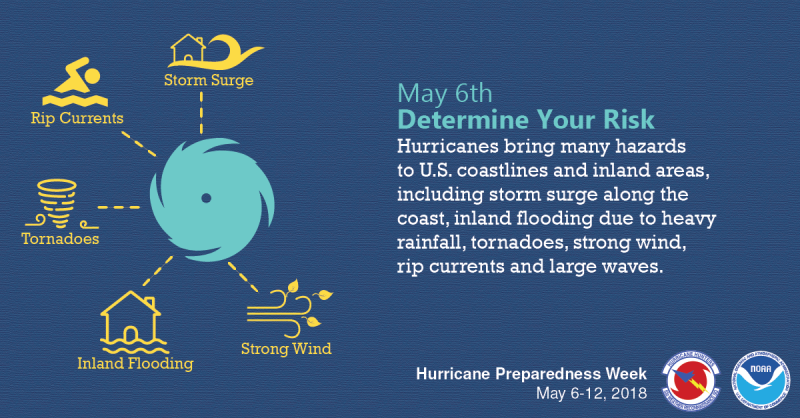
Hurricanes are not just a coastal problem. Their impacts can be felt hundreds of miles inland, and significant impacts can occur without it being a major hurricane. It is your time to prepare for a potential land-falling tropical storm or hurricane.
http://weather.gov/hurricanesafety
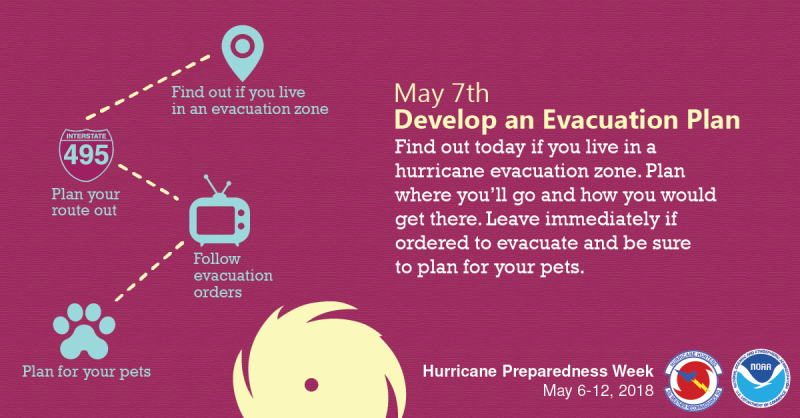
Make sure you have a hurricane evacuation plan. The first thing you need to do is find out if you live in a storm surge hurricane evacuation zone or if you’re in a home that would be unsafe during a hurricane. If you are, figure out where you’d go and how you’d get there if told to evacuate. You do not need to travel hundreds of miles. Identify someone, perhaps a friend or relative who doesn’t live in an evacuation zone or unsafe home, and coordinate with them to use their home as your evacuation destination. Be sure to account for your pets, as most local shelters do not permit them. Put the plan in writing for you and those you care about.
http://flash.org/hurricane-season/evacuation-zones/find-your-evacuation-zones.pdf
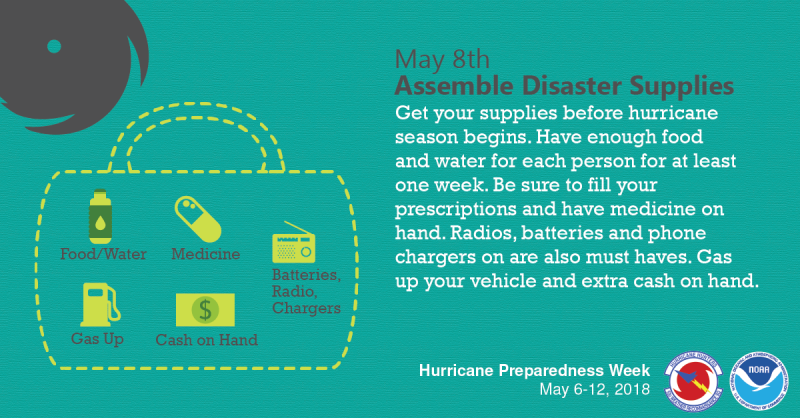
If a hurricane strikes, you’re going to need supplies not just to get through the storm but for the potentially lengthy recovery period that could follow. Have enough non-perishable food, water and medicine to last each person in your family a minimum of one week. Electricity and water could be out for at least that long. You’ll need extra cash, a battery-powered radio and flashlights. You’ll also need a portable crank or solar powered USB charger to charge your cell phone.
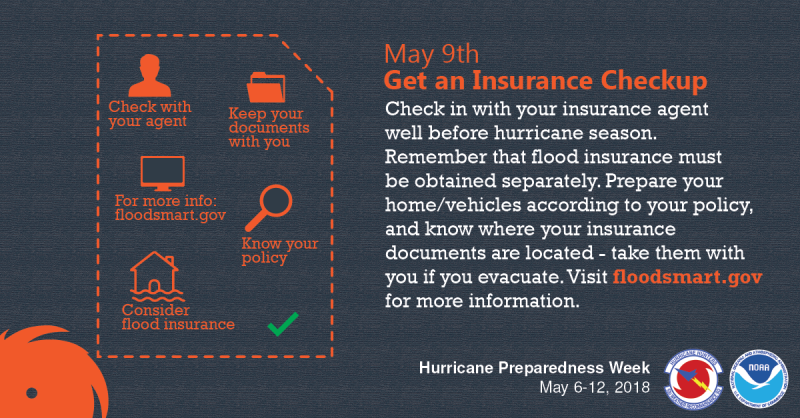
Call your insurance company or agent and ask for an insurance checkup to make sure you have enough homeowners insurance to repair or even replace your home. Don’t forget coverage for your car or boat. Remember, standard homeowners insurance doesn’t cover flooding. Whether you’re a homeowner or renter, you’ll need a separate policy for flooding. It’s available through your company, agent or use the agent locator at www.floodsmart.gov. Act now as flood insurance requires a 30-day waiting period.
https://www.fema.gov/what-mitigation
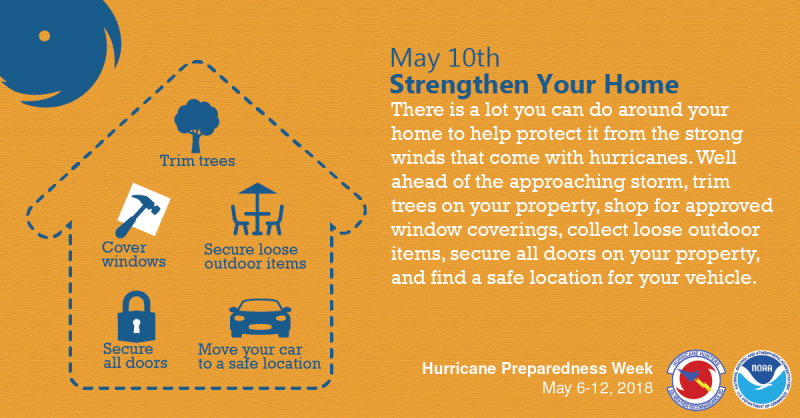
If you plan to ride out a hurricane in your home, make sure it is in good repair and up to local hurricane building code specifications. Have the proper plywood, steel or aluminum panels to board up the windows and doors. Remember, the garage door is the most vulnerable part of the home, so it must be able to withstand high winds.
https://www.fema.gov/what-mitigation
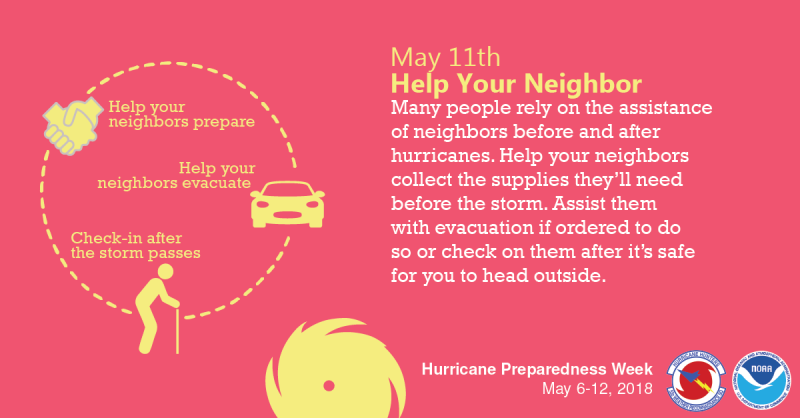
Many Americans rely on their neighbors after a disaster, but there are also many ways you can help your neighbors before a hurricane approaches. Learn about all the different actions you and your neighbors can take to prepare and recover from the hazards associated with hurricanes: https://community.fema.gov/action/plan-with-neighbors
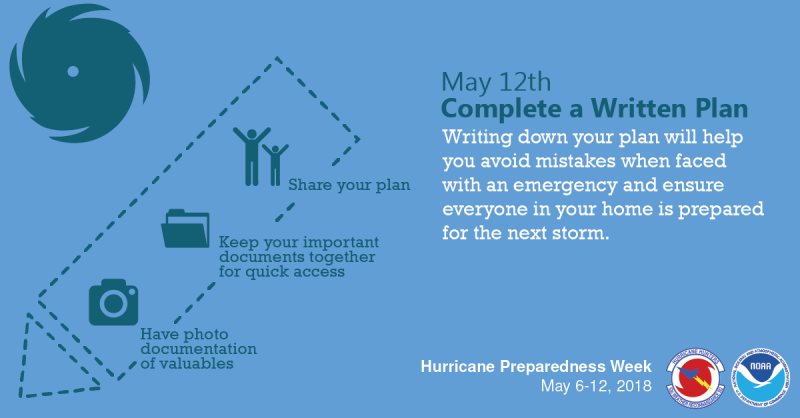
The time to prepare for a hurricane is before the season begins, when you have the time and are not under pressure. If you wait until a hurricane is on your doorstep, the odds are that you will be under duress and will make the wrong decisions. Take the time now to write down your hurricane plan. Know where you will ride out the storm and get your supplies now. You don’t want to be standing in long lines when a Hurricane Watch is issued. Those supplies that you need will probably be sold out by the time you reach the front of the line. Being prepared, before a hurricane threatens, makes you resilient to the hurricane impacts of wind and water. It will mean the difference between your being a hurricane victim and a hurricane survivor.
